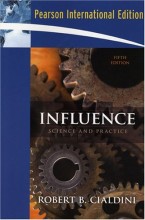Summary: Advanced Cn Fatigue Week 2
- This + 400k other summaries
- A unique study and practice tool
- Never study anything twice again
- Get the grades you hope for
- 100% sure, 100% understanding
Read the summary and the most important questions on Advanced CN fatigue week 2
-
1 Fatigue in multiple sclerosis: Mechanisms, evaluation, and treatment
This is a preview. There are 1 more flashcards available for chapter 1
Show more cards here -
What is the main cause of impaired quality of life in MS pt.? Name a consequence
Fatigue, imposes socioeconomic consequences by loss of work hours or employment -
Fatigue is poorly understood, name 3 reasons/consequences
1. subjective symptom without unified definition
2. no gold standard exists for measuring fatigue
3. fatigue in MS may be multifactiorial (depression and sleep disorders) -
Fatigue is thought to emerge from involvement of the immunesystem from central nervous system damage. Name three primary mechanisms fatigue is thought to emerge from
1. Cytokine influences: cytokines implicated in MS as mediators of fatigue. increases in certain cytokines in fatigued patients compared to non-fatigued patients (cytokines are messengers for immunesystem)
2. Endocrine influences: HPA-axis and DHEA involved in fatigue when both levels are low: especially DHEA. Also increased energy in patients after taking corticosteroids
3. Axonal loss and altered cerebral activation: fatigue may arise from compensatory reorganization and increased brain recruitment + decreased regional glucose metabolism in frontal cortex and basal ganglia + MRS shows reduction in NAA/Cr ratios in multiple brain regions -
Name four secondary mechanisms fatigue is thought to emerge from
1. Sleep disorders (restless leg syndrom, central sleep apnea, chronic insomnia)
2. Depression
3. MS subtype (subtype and severity)
4. Iatrogenic mechanisms (medications) -
What is the recommended diagnostic approach for fatigue by Braley (2010)?
1. Initial questioning
2. Sleepiness assessment
3. Depression screening
4. Fatigue quantification
5. Other medical conditions (hematologic and metabolic conditions, iron studies, Vitamine B12, folate, Thyroid, Vitamin D) -
Name 4 treatments used to treat fatigue
1. Amantadine
2. Pemoline
3. Modafinil (sleep disorders)
4. Non-pharmalogical treatment: CBT, RT (relaxation therapy), aerobic exercise, rehabilitation, energy conservation, cooling devices -
2 Fatigue, cognition, and mental effort
This is a preview. There are 11 more flashcards available for chapter 2
Show more cards here -
Name two reasons why fatigue is poorly understoof and management strategies are partially effective
1. Lack of widely accepted conceptual framework
2. Fatigue still conceptualized as unitary construct rather than multifaceted symptom -
How is fatigue reported nowadays?
objective physical performance or perceived lack of physical or mental stamina -
What is the primary approach of reporting fatigue and what is the problem with it?
Primary approach nowadays by subjective patient reporting but correlate poorly with actual physical performance, also correlate poorly with disease state or cognitive dysfunction -
What is the working definition of mental fatigue?
mental fatigue is time related deterioration in ability to perform mental tasks
- Higher grades + faster learning
- Never study anything twice
- 100% sure, 100% understanding































